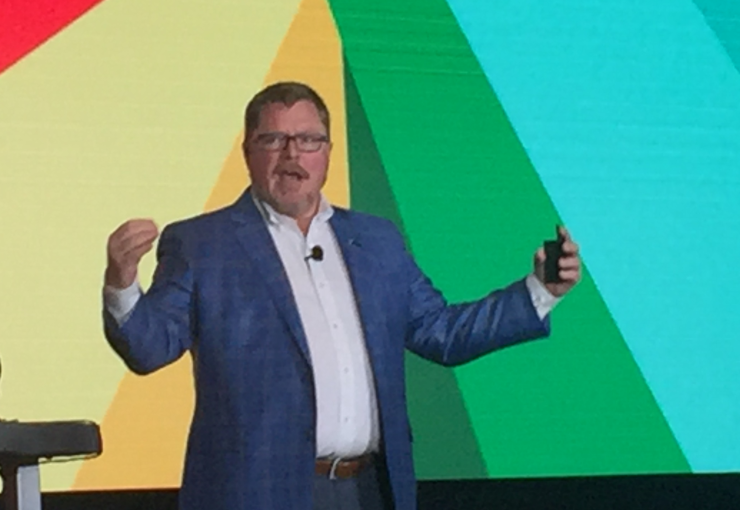AUSTIN, Tex. — A world where even signage is connected online will force banks to change the way they think about channels to reach customers, says Dominic Venturo, chief innovation officer for U.S. Bank.
“We’re still talking about omnichannel and digital, and thinking of things as channels and enabling connections and interoperability between those channels, like a customer starting something on mobile and finishing in a branch,” Venturo told the audience at American Banker’s Digital Banking conference. “But what happens when everything is a channel?”
Envisioning a world dominated by smart technology and the so-called internet of things just a decade from now, Venturo explored how banking will fit into a landscape where not only smart homes and cars exist, but even connected sidewalks and roads.
Describing what he called “ambient banking,” Venturo said “this is a world where Wi-Fi is arguably like air, and everything has the ability to connect.”
For the consumer, this could mean living in a home that can detect when items need to be reordered, or traveling in an

Venturo argued such advances could happen sooner than people realize and that banks have to prepare. “It’s always instructive to look backwards before you look forwards,” he said. “Over the last 10 years, we’ve seen that new technology continues to take off faster than what came before it. Some have argued that
The lesson bankers can take away today from this not-too-distant future scenario is to focus on creating the contextual, personalized services consumers have already come to, expect, Venturo added.
Others agreed banks need to rethink how they approach digital.
“We have always talked of digitizing everything, and in the past we’ve focused on taking paper and putting that into a digital format rather than evolving the experience of the customer,” Jennifer Roberts, head of Chase Pay and digital products at JPMorgan Chase, said in a separate session.
Rather, banks need to create “elevated, curated digital experiences,” she said. As an example, Roberts discussed Chase’s partnership with and investment in the
Roberts said the relationship is part of Chase’s overarching strategy to add value to the customer experience, as opposed to just powering transactions.
“It’s about how do we help a customer not just finance a car, but own a car,” she said. “And what does that mean for the end-to-end experience and how can the bank support them in that.”
Customers are also increasingly demanding because of expectations they have from digital experiences in other areas outside of banking, Roberts added, and banks likewise should understand “the general notion of immediacy, and consumers having zero patience.”
Indeed, banks must continue to evolve because “the customer experiences continues to advance,” in all industries, said Jennifer Daugherty, senior vice president and director of omnichannel strategy for Fifth Third Bank.
Daugherty noted that consumers now can order groceries from Whole Foods through their Amazon account and have them arrive “two hours later, neatly packaged in boxes. That kind of experience is setting up the expectations consumers have for the integration between all of the channels.”
Though popular sentiment holds that millennials are the demographic most likely to demand such digital experiences, Daugherty said, Fifth Third customer research showed this expectation is prevalent among all age segments.
“Whether it is Gen X or boomers as well, we have found these concepts hold true among all generations,” she said.
Though technology such as artificial intelligence has the ability to add convenience to customers’ lives, Venturo warned that banks and other industries
Displaying a slide featuring a quote from Peter Parker’s uncle Ben,





